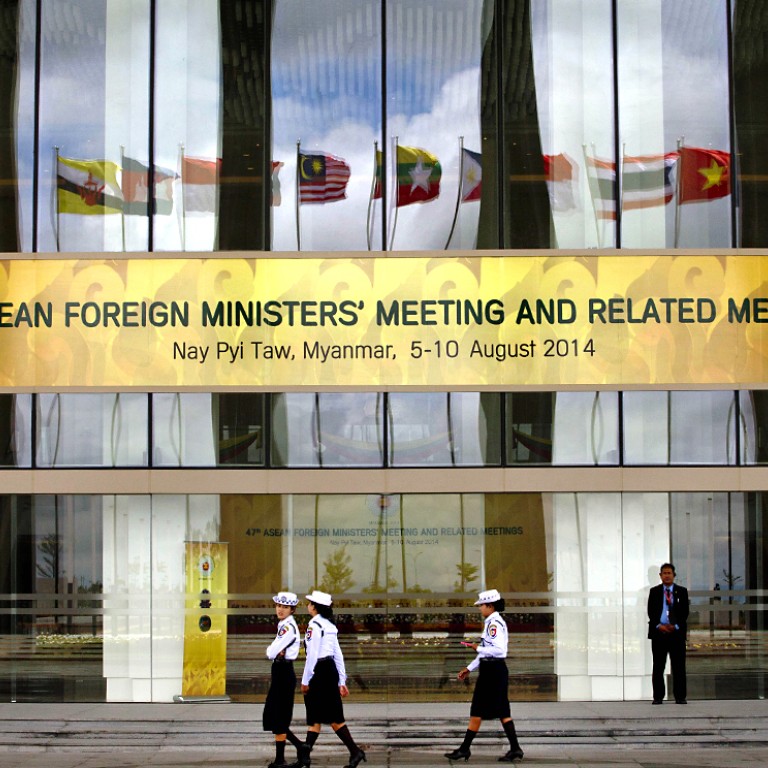
Any progress at Asean forum will be backstage, analysts say
Analysts do not see resolution of disputes, but say China and Japan may inch towards dialogue
It has been called a diplomatic talking shop. But as foreign ministers gather in Myanmar for the Asean regional forum this weekend, back-door diplomacy could provide hints on how security issues are playing out in the region.
While the South China Sea will continue to take centre stage, analysts are also looking at the debut appearance of North Korea's new foreign minister, Ri Su-yong, and whether Chinese and Japanese foreign ministers will meet face to face.
US Secretary of State John Kerry is expected to call for a voluntary freeze from all parties on actions that escalate the territorial disputes in the South China Sea, a move some analysts say will draw a strong reaction from China.
The Philippines, one of the most vociferous states in challenging China's claims, has said it would table a plan at the meeting to address "provocative and destabilising activities" at sea.
It will call for an immediate moratorium on "specific activities that escalate tension", the speedy conclusion of talks for a legally binding code of conduct, and the establishment of a dispute settlement mechanism anchored on international law.
But the annual security forum, attended by the 10 Association of Southeast Asian Nations members and other key partners, would do very little to address the disputes, said Carl Thayer, a Southeast Asian analyst at the Australian Defence Force Academy.
"The Asean foreign ministers are likely to make another statement, stressing concerns, call for resolution, that's just boilerplate that gets repeated every time and has no effect," Thayer said.
But Myanmar having the Asean chair this year could be problematic, according to Rodolfo Severino, a former Asean secretary general and now a visiting senior researcher at the Institute of Southeast Asian Studies.
"China is an immediate neighbour and continues to be a potential source of big investments in a country that could certainly use them.
"At the same time, it has to show US voters that Myanmar's 'reforms' have some basis," Severino said.
"So, the Myanmar chairmanship runs smack into the Sino-US rivalry for dominance in the Asia-Pacific."
Oh Ei Sun, an analyst at the S.Rajartnam School of International Studies in Singapore, said efforts to rein in China would also be undercut by Myanmar's lack of clout.
But other diplomats are using the two-day dialogue, which starts tomorrow, to advance their interests.
The North Korean delegation was expected to gather information and "get a sense of what's going on" as it continued to consider reducing its reliance on China, said Adam Cathcart, an analyst at Leeds University.
Japanese Foreign Minister Fumio Kishida also allegedly planned to seek informal contacts with his Chinese counterpart Wang Yi tomorrow, Kyodo reported, citing sources.
The report said China had expressed reluctance to arrange talks between Kishida and Wang at the forum because the two sides had yet to create an environment for dialogue.
Japanese Prime Minister Shinzo Abe has been unable to hold bilateral meetings with President Xi Jinping since taking power in late 2012.
But there have been signs that the two sides might be exploring the possibility of a meeting between the two leaders during a regional summit to be held in Beijing in November.
